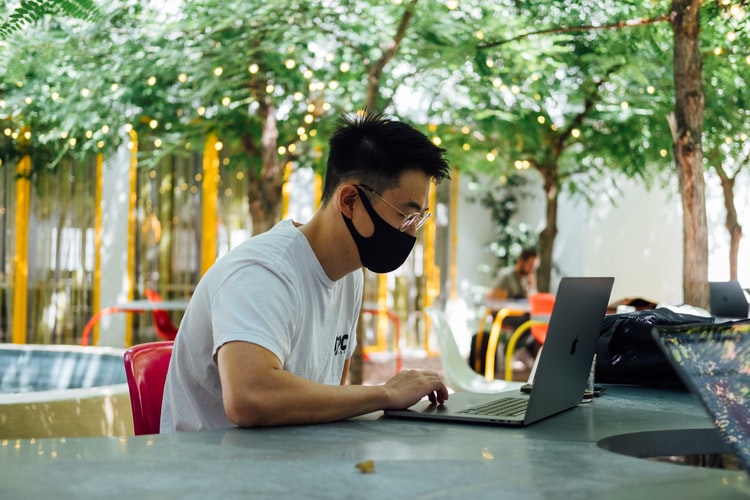
Life&Style writer Emily Baldwin details how to go about obtaining lockdown work experience- including how to network on social media and finding the best online courses to take
“It is time to get creative and seek out new opportunities
Work experience: we are constantly told we need to get it, but less often told how to get it. The pandemic has made a lot of things challenging this year, and getting work experience is certainly one of them. With work spaces shut for the foreseeable future and physical networking events a novelty of the past, it is time to get creative and seek out new opportunities and new ways of learning the important skills needed for jobs in the future.
1. Identify
It might sound a little airy fairy, but the first step is to identify where you are coming from and where you are going. Spend an afternoon cataloguing everything and anything you have done that could be relevant to your future career. If you were a prefect at your school, you have some fantastic leadership skills. If you completed a pesky group assignment last semester, you can work in a team. Have you created content using iMovie or Adobe Suite for a society? Recognise that! Do you handle large quantities of data in your degree? Go you! Look back and identify what you have already done and then think about what gaps exist in your skillset.
2. Develop
Now that you have identified what you can and cannot do, it is time to be a true child of the internet age and get googling. There are hundreds, and I mean hundreds, of online courses that will teach you fantastic transferable work skills. My favourite is LinkedIn learning, not just because we get a free membership through uni, but because it provides courses for every industry. This is a great way to get some experience in your chosen field and it will boost future work experience applications in the process. Other websites which can be used to develop work experience skills are Future Learn, Khan Academy and Google Digital Garage (this is particularly great if you’re interested in marketing or web development roles). What is best, all of these websites are free and easy to use. Yay!
3. Network
So now you know what you are good at and you have worked on gaining some industry-specific skills. Next you need to start the dreaded networking process. But don’t fear, networking can be as easy as connecting with other students or friends and learning from each other. Here at UoB, there are so many networking opportunities available through the Careers Network, the ‘insight into’ webinar series that they are running at the moment is particularly useful and often involves hearing from alumni’s who you can connect with afterwards. Networking can be tricky, especially if you do not have any adults in your life who work in the industry you desire, but be confident and take every opportunity that your department and the careers network offer. If this is not helping, join industry-specific LinkedIn groups and facebook pages as fab resources, networking events and job opportunities will be posted in them and you might be able to find some people to ask questions to.
You can also find volunteering opportunities with Jooble.
4. Apply/volunteer
You’re almost there, now you need to put everything to good use and start asking for work experience. Publicising work experience opportunities takes time and money, so do not be discouraged if work experience is not mentioned on a company’s website. Spend some time researching companies that you would like experience with and identify a way that you can help them – it might help to acknowledge a challenge they may be facing and a way that you could help tackle it. If this does not work, look for a volunteer position using the Birmingham Voluntary Service Council website. Many charities (regional or national) recruit volunteers in a wide range of professions. You could create a social media marketing strategy, organise a volunteer database, update or create a website or help plan major fundraising events. Volunteering is a great way to get work experience and help the community at the same time, this can lessen the sting of having to provide unpaid labour. Due to the pandemic many volunteering positions have moved online, making them easier to complete around a busy uni schedule. I can even testify that volunteering works, as my current job came from being a volunteer in the past.
5. Reflect
Once your work experience is over, reflect on what you have accomplished and achieved. Perhaps create a document with the projects and skills that you developed during your time, and remember to check in with the people you worked with in the future. Remember that it is not about how many opportunities you have found or hours you have worked, but about how you identify and market your experience in the future. Times are tough right now and work experience is especially hard to get, but anything can be translated to a hard or soft skill going forward. Even completing your degree in a pandemic is proof alone of resilience, determination and good-spirit. So, do not be hard on yourself if you cannot find formal work experience this year; you probably have more experience than you think.
“Do not be hard on yourself if you cannot find formal work experience this year
Check out more from Life&Style:
International Women’s Day: #ChooseToChallenge
Why Priyanka Chopra’s Apology Does Little to Alleviate the Pain She Has Created for Women of Colour

Comments